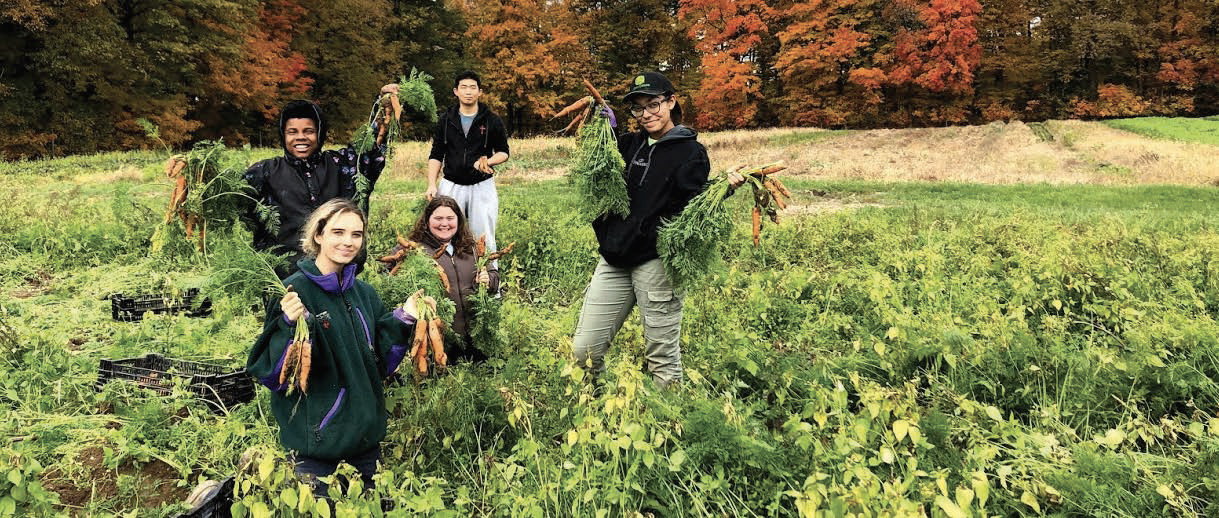
Aug 13, 2020
Grower column: Growing new farmers at Michigan State University
The Student Organic Farm (SOF) at Michigan State University (MSU) is a 15-acre production farm that gives students and beginning farmers a place to learn the skills to grow vegetables year-round and to understand the business of farming. The farm grows about $200,000 worth of produce annually for 130 CSA members, as well as dining halls and a campus farmstand from half-acre of unheated hoop houses and about 5 acres of annual vegetables rotated with 5 acres of cover crops.
The farm started in 1999 when students realized there were no courses at MSU dedicated specifically to organic and sustainable production methods. Seeking to change that, a group of inspired students, staff, and faculty came together to discuss ideas for the development of a teaching farm on campus.
Two years later, a topics class on “What is Organic?” was convened, and the first two high tunnels were built on the current farm site. Two decades later, we celebrate the success of these students, staff and faculty, and of those who have worked at the SOF since its founding in 1999. Students and farmers now have a wealth of learning resources and skill-building opportunities in organic agriculture on MSU’s campus.
Join us for a farm tour!
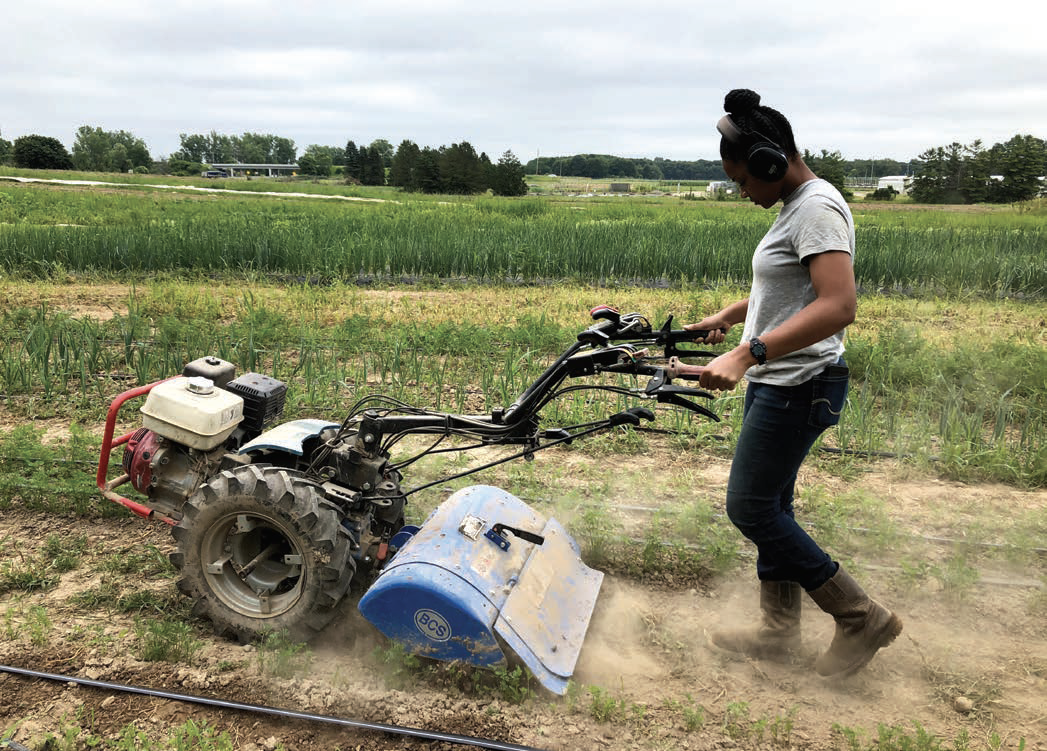
through Michigan State University, works on the farm. Photos: MSU
As part of a university, the MSU Student Organic Farm hosts hundreds of people for farm tours every year. Since the world is currently socially distant and few people will be able to see the farm at this time, I invite you to imagine a visit.
- In winter, you may be amazed to step into the warmth of the greenhouse effect in our unheated hoop houses and to taste the super sweet spinach from a hoop house on a sunny, winter day when snow blankets the earth outside.
- A highlight for farm tours in summer is often the Edible Forest Garden which is 2/3 of an acre planted in fruit trees, nuts, unique berries, pollinator habitat and other perennials. Permaculture principles were integral to the design created by an MSU graduate student over a decade ago.
- In the autumn of years when we host pigs in partnership with university researchers, you may agree that the piglets were your favorite.
- In an autumn without pigs, visitors often taste something unique that they have never tried before – a ground cherry, paw paw or kohlrabi slice connects people viscerally to the farm, whether they love the new flavor or didn’t like it one bit.
Tours also include a bit about the history of the farm, soil carbon sequestration via cover crops and what it means to be organic, set to the age and interests of each group of visitors. Most tours are led by undergraduate crew members, such as Abby Kuplicki, who shares that “I love giving tours because it’s one of the best ways I can share what we do at the farm with other people in the community. It’s a great way to help people make the connection between organic farming as an idea to the actual practice of farming. Giving tours helps me to be more comfortable speaking to large groups and answering questions about SOF and farming in general. I love telling people all about my job here.”
A learning laboratory for the MSU students
Up to 20 paid student crew members gain valuable insights into farming techniques from planting to harvest and marketing. Undergraduate crew members also develop their own unique capabilities by hosting farm tours, driving tractors and taking leadership roles in crew management, irrigation, CSA distribution or transplant production.
Beyond student employment, the farm hosts students to design internship projects, engage in service-learning for their classes or to visit the farm on a tour for class or to volunteer with a student club. Undergraduates have even designed and built a germination chamber, a marketing plan and engaged in soil research, entomology and many other projects on the farm as part of capstone classes.
A learning community for beginning farmers
While educating MSU students is at the heart of the farm (and the farm name!), outreach to aspiring and beginning farmers has been extremely important as well. The MSU Organic Farmer Training Program is a 50/50 mix of field and classroom activities, including tours of 20+ farms, 15-plus guest speakers, hands-on farming experience and writing a Farm Business Plan.
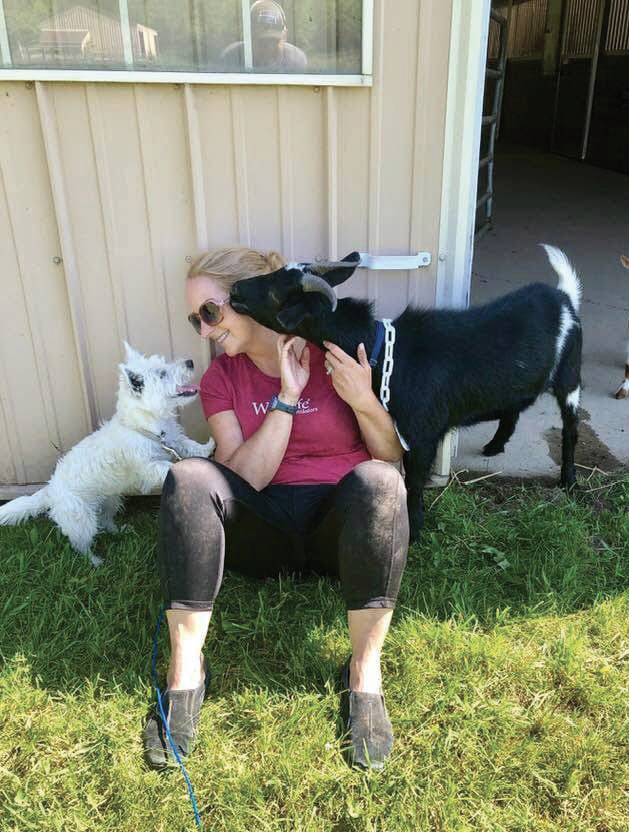
There is always an interesting mix of aspiring, beginning and transitioning farmers, farmworkers, homesteaders and educational gardeners who all contribute to the learning community. As 2019 OFTP graduate Cindy Kern says, The Farm Business Plan Accelerator was developed to allow people to meet online with like-minded beginning and aspiring farmers to write farm business plans. While it does not offer the hands-on experience of the OFTP, it is a good fit for people during COVID-19 or if they are unable to travel to East Lansing. Class meetings stress interactive learning, but traditional lectures are available as videos for participants to review on their own time.
Farmer Field School organizes workshops on farms taught by farmers with topics as diverse as converting a washing machine into a greens dryer, growing cut flowers for weddings and events or managing weeds organically through cultivation.
Meet the Growers
Katie Brant, Educational Programs Manager, MSU Student Organic Farm
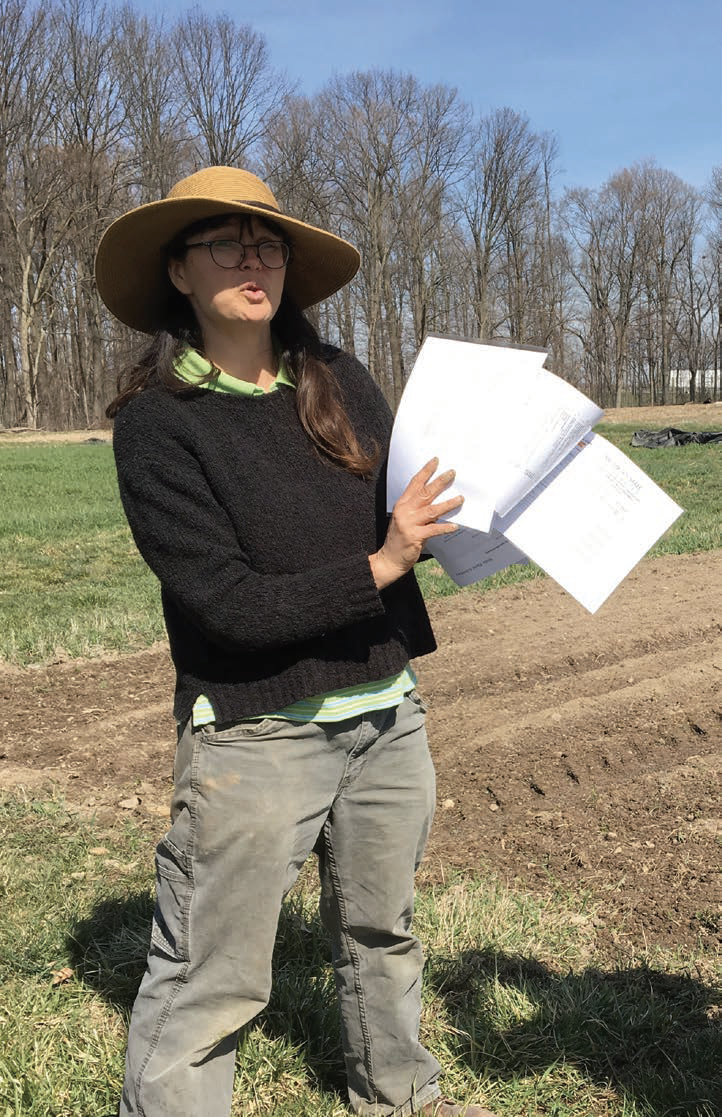
I’ve been farming for most of the last 20 years and love that agriculture gives you the opportunity to be ever-curious. I was amazed how much I was learning on farms in my summers “off” from college. But as I have stuck with farming, that learning never really stopped or even slowed down as I have moved from farm worker, to field manager, to entrepreneur and farmer, and now as an educator who still gets to be part of a production farm at a university.
I started out working short stints at a farm on a Tennessee mountainside, then a dairy farm in southern Michigan, then spent a full season at each of three vegetable farms. I have been able to work land with shallow bedrock, heavy clay, sand and muck soils. The grower at Trillium Haven Farm handed me a piece of spare lumber with the address of the farm that I ended up leasing and later buying with my business partner Anna Hoekstra. We started out with no infrastructure or equipment, but with 7 acres of very rich muck soils we were able to grow abundant, tasty produce from the start.
Groundswell Community Farm grew from two farmers tilling bare land with hand tools in 2006 into a viable business employing 10 farmworkers and three tractors to grow some serious quantities of vegetables. As I transitioned to teaching at MSU in 2017, the farm thrived under two amazing farm managers. We then leased the farm to an OFTP graduate in 2018 and sold it on land contract to another beginning farmer in 2019.
Sarah Geurkink, Farm Manager, MSU Student Organic Farm
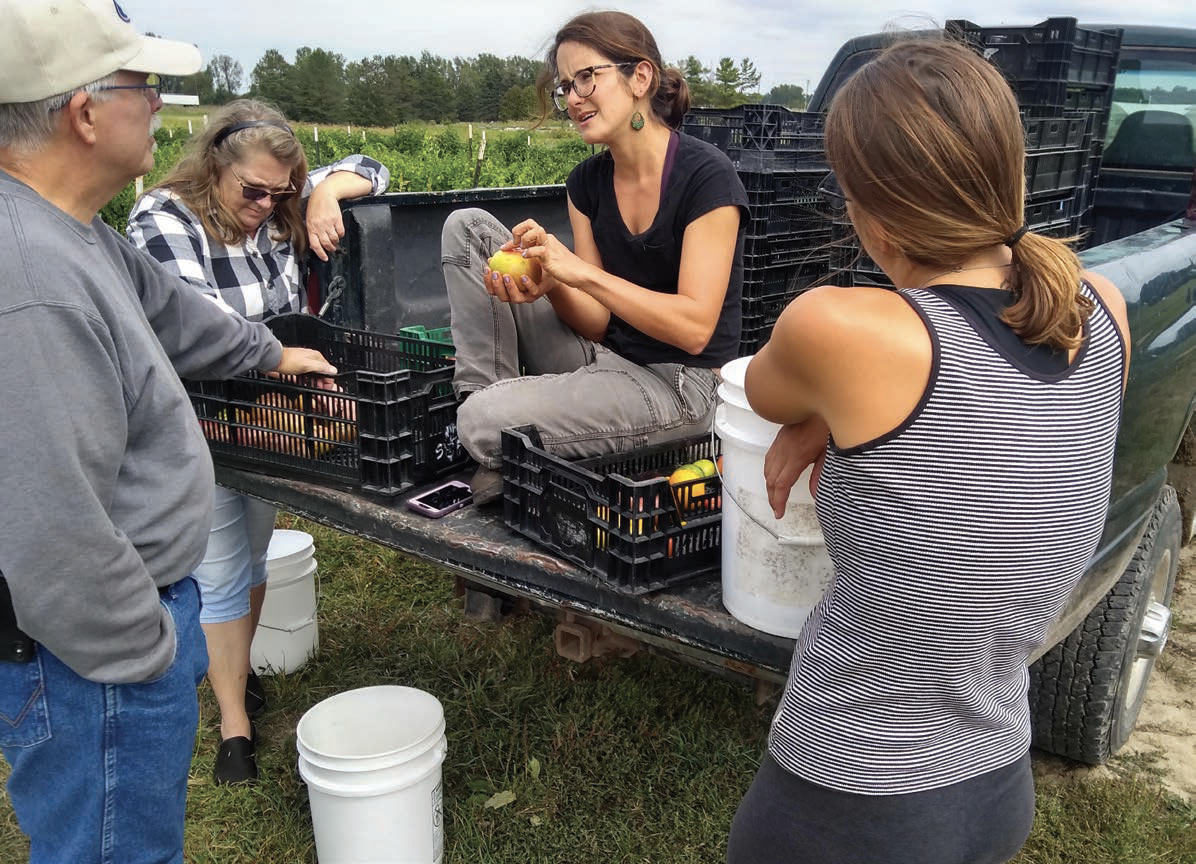
Sarah grew up in São Paulo, Brazil, but spent most of her childhood weekends visiting her extended family in their rural town. She spent a lot of time running around the farm where her grandfather operated an apiary and honey house and her dad kept a small orchard, livestock, and a commercial vermiculture facility.
After college, Sarah intended to spend just one season as a farmworker at Groundswell Community Farm in Zeeland, Michigan. She stayed on as a manager of Groundswell for two more years, at which point she decided pursue a career in farming.
In 2013, Sarah became the manager of the University of Washington Student Farm, a 1.5-acre market garden in Seattle. She joined the SOF in 2017. Sarah especially enjoys seeing students apply their academic studies to their efforts on the farm, while gaining new skills and a deeper understanding of sustainable food systems.
Organic Farmer Training Program Graduates
Bill Coughlin
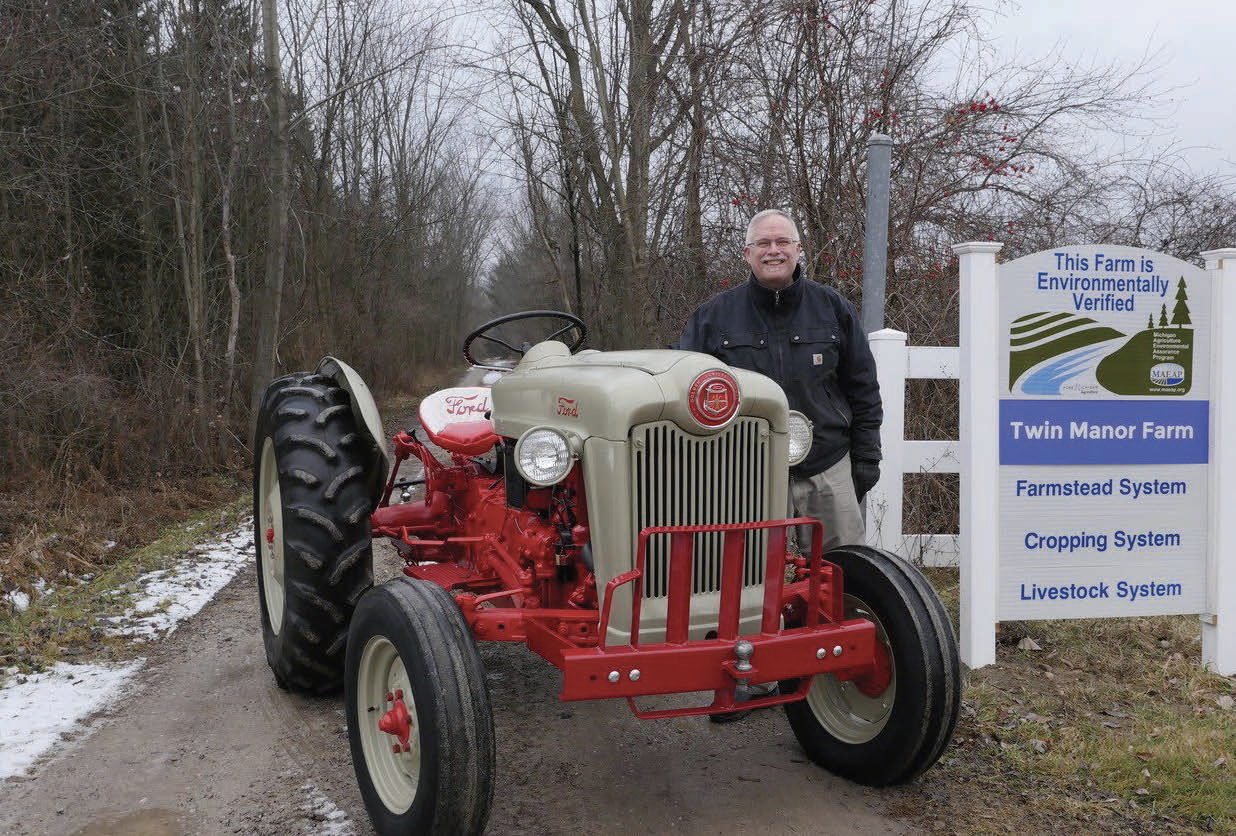
Bill Coughlin is the owner of Twin Manor Farm.
“This is an extraordinary program. It’s as good or better than much more expensive intensive training, such as the Stanford Executive Program. I built and managed my first hoophouse and made my first sales to a local restaurant during the 2019 OFTP. This would not have been possible but for your program, and I am grateful that you made this possible for me.”
Aliza Ghaffari
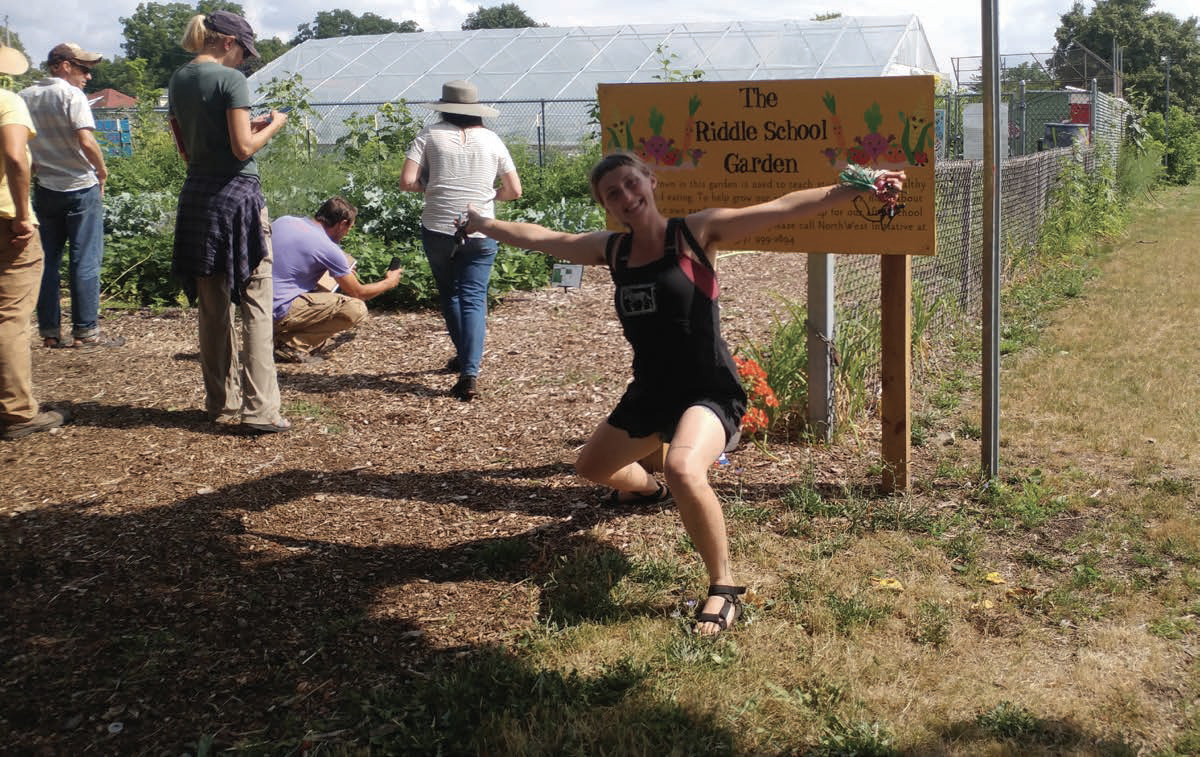 Aliza Ghaffari is the School Nutrition Educator at the NorthWest Initiative’s Food Systems Project where she works with over 1,000 Lansing Public School students in 4 schoolyard gardens.
Aliza Ghaffari is the School Nutrition Educator at the NorthWest Initiative’s Food Systems Project where she works with over 1,000 Lansing Public School students in 4 schoolyard gardens.
“The knowledge and experience that I have gained through the OFTP have strengthened my skills as an organic vegetable grower and helped me understand the complexities of managing a farm business. As an educator myself, I really enjoyed observing how this program was structured and taught. I have borrowed and adapted many wonderful activities and lessons from the OFTP to share with my own students through our school garden-based nutrition education program.”
Jessica Newsome
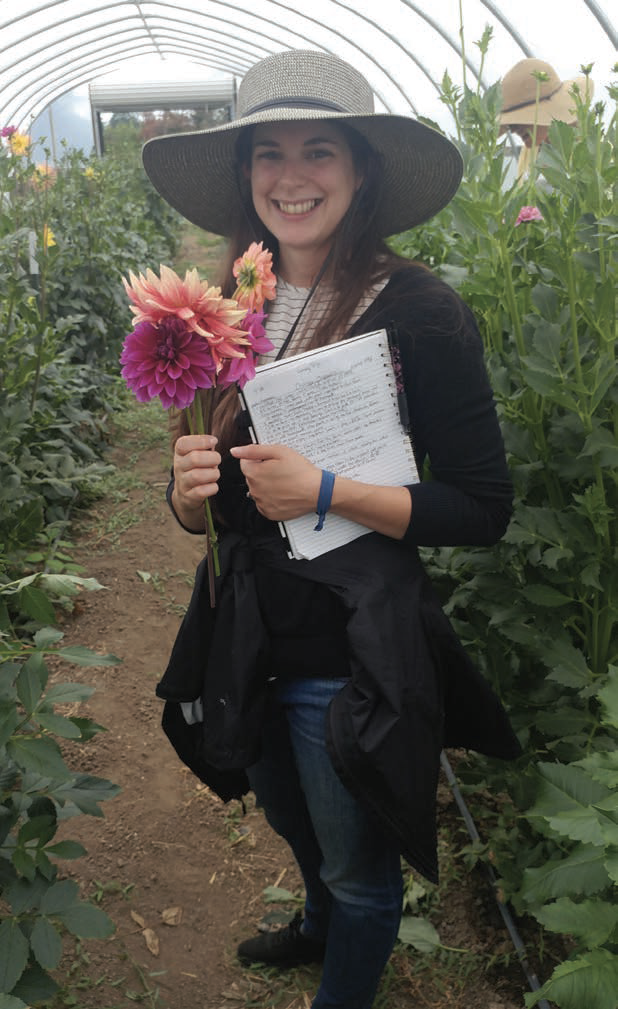 Jessica Newsome manages therapy gardens at Team Wellness Center’s two community mental health clinics in Southgate and Detroit. She hosts health education groups in the gardens, teaching people how to grow their own food, improve their health, and learn the connections between what we eat and how we feel.
Jessica Newsome manages therapy gardens at Team Wellness Center’s two community mental health clinics in Southgate and Detroit. She hosts health education groups in the gardens, teaching people how to grow their own food, improve their health, and learn the connections between what we eat and how we feel.
“I am a registered nurse and now I proudly introduce myself as an organic farmer! The networking opportunities through OFTP are amazing, and no matter what your interests are, the OFTP will connect you with someone you can learn from. Professionally, attending the OFTP has opened so many doors for me; my job is now allowing me to implement the business plan that I created in the program.
Heidi Bombrisk
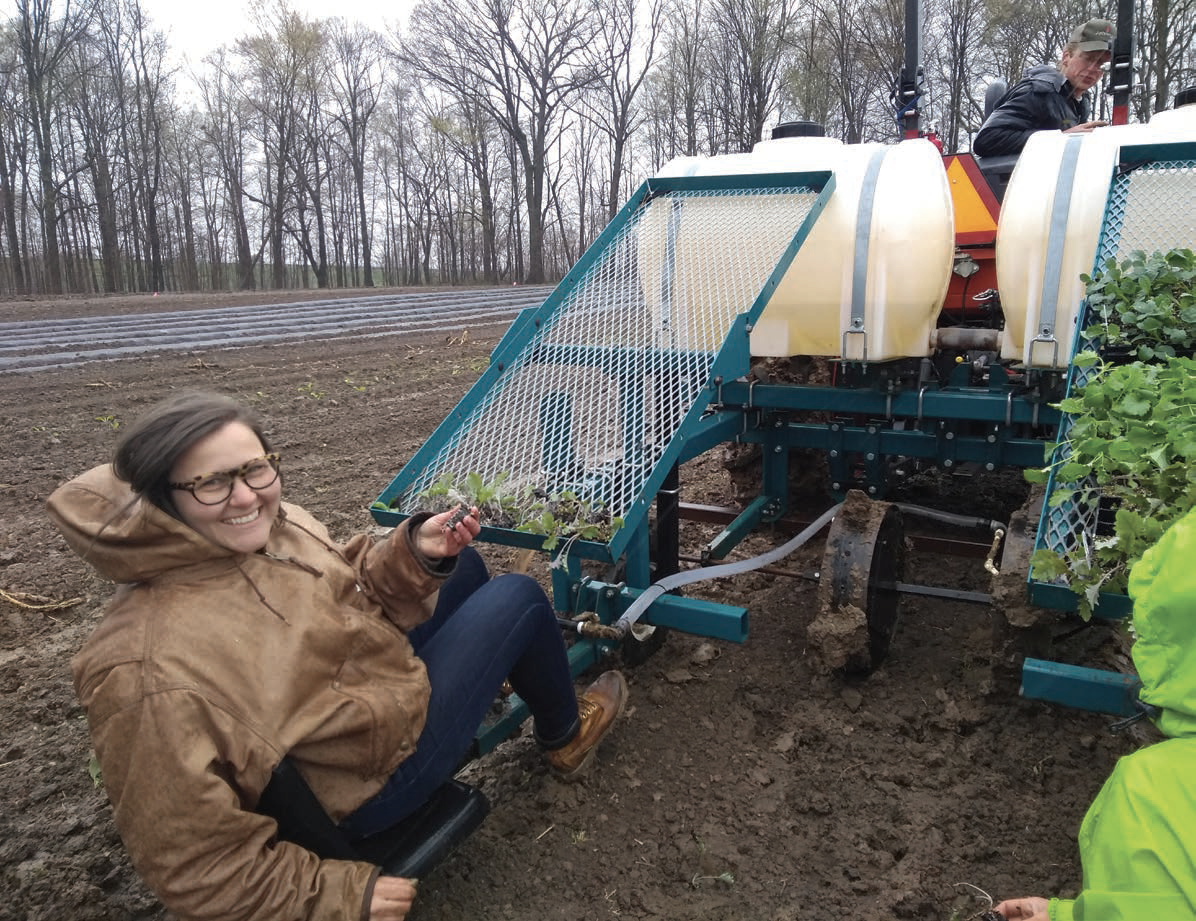 Heidi Bombrisk is the Program Coordinator at Food Zoo & Kids Helping Kids at Gleaners of SE Michigan and the owner of Family Roots Farm.
Heidi Bombrisk is the Program Coordinator at Food Zoo & Kids Helping Kids at Gleaners of SE Michigan and the owner of Family Roots Farm.
“The Organic Farmer Training Program has not only helped me hone my farming practices, it has advanced my tools and skills as an outdoor educator for youth-based garden learning opportunities. Our children’s garden grows beautiful produce and has created a positive environment for families to reconnect with food, health and the earth. There is nothing more powerful than the wonder and joy of a child who harvests and snacks on produce that they tended to and cared for. For 2020, I have received funding to start my own farm, Family Roots, which will supply kid-friendly produce to preschools and daycare centers to improve nutrition during early childhood when brain development is at its peak.”






